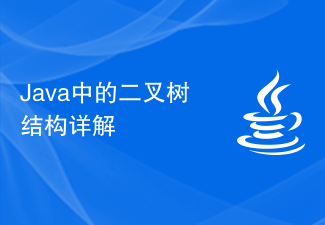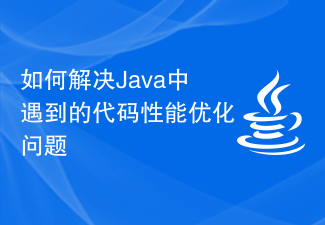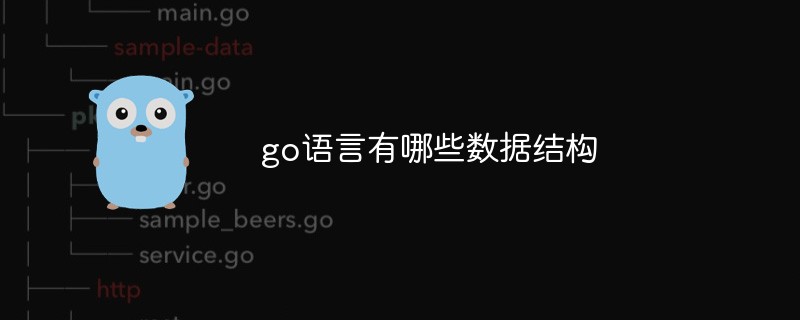This article mainly introduces a simple usage example of the data structure heap (SplHeap) of the PHP SPL standard library. This article also explains the relevant knowledge of the maximum heap (SplMaxHeap) and the minimum heap (SplMinHeap). I hope to be helpful.
Heap is a data structure designed to implement priority queues. It is implemented by constructing a binary heap (a type of binary tree). The heap with the largest root node is called the maximum heap or large root heap, and the heap with the smallest root node is called the minimum heap or small root heap. Binary heaps are also commonly used for sorting (heap sort).
As follows: Minimum heap (the priority of any node is not less than its child node)

Look at the implementation of PHP SplHeap:

Obviously it is an abstract class, and the maximum heap (SplMaxHeap) and the minimum heap (SplMinHeap) are implemented by inheriting it. There are no additional methods for the maximum heap and the minimum heap.
The simple use of SplHeap is as follows:
class MySimpleHeap extends SplHeap
{
//compare()方法用来比较两个元素的大小,绝对他们在堆中的位置
public function compare( $value1, $value2 ) {
return ( $value1 - $value2 );
}
}
$obj = new MySimpleHeap();
$obj->insert( 4 );
$obj->insert( 8 );
$obj->insert( 1 );
$obj->insert( 0 );
echo $obj->top(); //8
echo $obj->count(); //4
foreach( $obj as $number ) {
echo $number;
}Related recommendations:
The forgotten gem of PHP SPL_PHP tutorial
PHP SPL usage method and its power_PHP tutorial
The above is the detailed content of Simple example of PHP SPL data structure heap (SplHeap). For more information, please follow other related articles on the PHP Chinese website!
 Java中的二叉树结构详解Jun 16, 2023 am 08:58 AM
Java中的二叉树结构详解Jun 16, 2023 am 08:58 AM二叉树是计算机科学中常见的数据结构,也是Java编程中常用的一种数据结构。本文将详细介绍Java中的二叉树结构。一、什么是二叉树?在计算机科学中,二叉树是一种树形结构,每个节点最多有两个子节点。其中,左侧子节点比父节点小,右侧子节点则比父节点大。在Java编程中,常用二叉树表示排序,搜索以及提高对数据的查询效率。二、Java中的二叉树实现在Java中,二叉树
 Python 实现栈的几种方式及其优劣May 19, 2023 am 09:37 AM
Python 实现栈的几种方式及其优劣May 19, 2023 am 09:37 AM想了解更多关于开源的内容,请访问:51CTO开源基础软件社区https://ost.51cto.com一、栈的概念栈由一系列对象对象组织的一个集合,这些对象的增加和删除操作都遵循一个“后进先出”(LastInFirstOut,LIFO)的原则。在任何时刻只能向栈中插入一个对象,但只能取得或者删除只能在栈顶进行。比如由书构成的栈,唯一露出封面的书就是顶部的那本,为了拿到其他的书,只能移除压在上面的书,如图:栈的实际应用实际上很多应用程序都会用到栈,比如:网络浏览器将最近浏览
 PHP8中会支持的数据结构,将为你的代码提供更大空间Jun 21, 2023 am 08:13 AM
PHP8中会支持的数据结构,将为你的代码提供更大空间Jun 21, 2023 am 08:13 AMPHP是一种广泛使用的脚本语言,被广泛用于Web开发,服务器端编程以及命令行编程等。随着PHP不断更新和发展,它也日益成为一个更强大的编程工具,为用户提供了更多的功能和更多的工具来开发高质量的应用程序。其中,数据结构是一个非常重要的领域,一种有效的数据结构可以大大提高程序的性能和可读性。在这篇文章中,我们将讨论PHP8中支持的新数据结构,这些新的数据结构将让
 如何解决Java中遇到的代码性能优化问题Jun 29, 2023 am 10:13 AM
如何解决Java中遇到的代码性能优化问题Jun 29, 2023 am 10:13 AM如何解决Java中遇到的代码性能优化问题随着现代软件应用的复杂性和数据量的增加,对于代码性能的需求也变得越来越高。在Java开发中,我们经常会遇到一些性能瓶颈,如何解决这些问题成为了开发者们关注的焦点。本文将介绍一些常见的Java代码性能优化问题,并提供一些解决方案。一、避免过多的对象创建和销毁在Java中,对象的创建和销毁是需要耗费资源的。因此,当一个方法
 Java语言中的数据结构与算法介绍Jun 10, 2023 pm 01:37 PM
Java语言中的数据结构与算法介绍Jun 10, 2023 pm 01:37 PM随着计算机科学的不断发展,数据结构与算法成为了计算机科学领域中最为基础、重要的模块。数据结构是一种组织和存储数据的方式,它是解决问题的基础。算法则是计算机科学的核心,它是指在计算机程序中解决问题的方法和技术。Java作为一种广泛应用的编程语言,其自带的数据结构和算法库是非常强大的,赋予了开发人员更多的力量。一、数据结构Java中提供了多种数据结构,包括数组
 go语言有哪些数据结构Dec 16, 2022 pm 02:00 PM
go语言有哪些数据结构Dec 16, 2022 pm 02:00 PMgo语言数据结构有四大类:1、基础类型,包括整型(有符号和无符号整数)、浮点数、复数、字符串(由不可变的字节序列构成)、布尔值(只有true和false两个值);2、聚合类型,包括数组、结构体(是由任意个任意类型的变量组合在一起的数据类型);3、引用类型,包括指针、slice(是一个拥有相同元素的可变长度序列)、map、function、channel;4、接口类型。
 c语言中数据结构是什么?常见数据结构有哪些?Nov 03, 2020 am 11:38 AM
c语言中数据结构是什么?常见数据结构有哪些?Nov 03, 2020 am 11:38 AMc语言中,数据结构是指相互之间存在一种或多种特定关系的数据元素的集合,它是计算机存储、组织数据的方式;常见数据结构有:线性数据结构(数组、链表、栈、队列和线性表)、树形结构(二叉树、完全二叉树、二叉查找树、堆)、图形结构(有向图和无向图)。
 Go语言中的数据结构的实现方式Jun 01, 2023 pm 06:51 PM
Go语言中的数据结构的实现方式Jun 01, 2023 pm 06:51 PMGo语言是一种支持并发编程的语言,它的内置数据结构非常丰富,可以满足不同场景下的需求。Go语言中实现数据结构的方式有多种,包括数组、切片、字典、链表和树。数组和切片是最基础的数据结构,它们都可以存储一组相同类型的元素。不同之处在于数组的长度是固定的,而切片则可以动态扩展。Go语言中使用数组和切片可以快速创建数据结构,例如著名的排序算法中的快速排序和归并排序都


Hot AI Tools

Undresser.AI Undress
AI-powered app for creating realistic nude photos

AI Clothes Remover
Online AI tool for removing clothes from photos.

Undress AI Tool
Undress images for free

Clothoff.io
AI clothes remover

AI Hentai Generator
Generate AI Hentai for free.

Hot Article

Hot Tools

SublimeText3 English version
Recommended: Win version, supports code prompts!

Safe Exam Browser
Safe Exam Browser is a secure browser environment for taking online exams securely. This software turns any computer into a secure workstation. It controls access to any utility and prevents students from using unauthorized resources.

Zend Studio 13.0.1
Powerful PHP integrated development environment

DVWA
Damn Vulnerable Web App (DVWA) is a PHP/MySQL web application that is very vulnerable. Its main goals are to be an aid for security professionals to test their skills and tools in a legal environment, to help web developers better understand the process of securing web applications, and to help teachers/students teach/learn in a classroom environment Web application security. The goal of DVWA is to practice some of the most common web vulnerabilities through a simple and straightforward interface, with varying degrees of difficulty. Please note that this software

mPDF
mPDF is a PHP library that can generate PDF files from UTF-8 encoded HTML. The original author, Ian Back, wrote mPDF to output PDF files "on the fly" from his website and handle different languages. It is slower than original scripts like HTML2FPDF and produces larger files when using Unicode fonts, but supports CSS styles etc. and has a lot of enhancements. Supports almost all languages, including RTL (Arabic and Hebrew) and CJK (Chinese, Japanese and Korean). Supports nested block-level elements (such as P, DIV),






